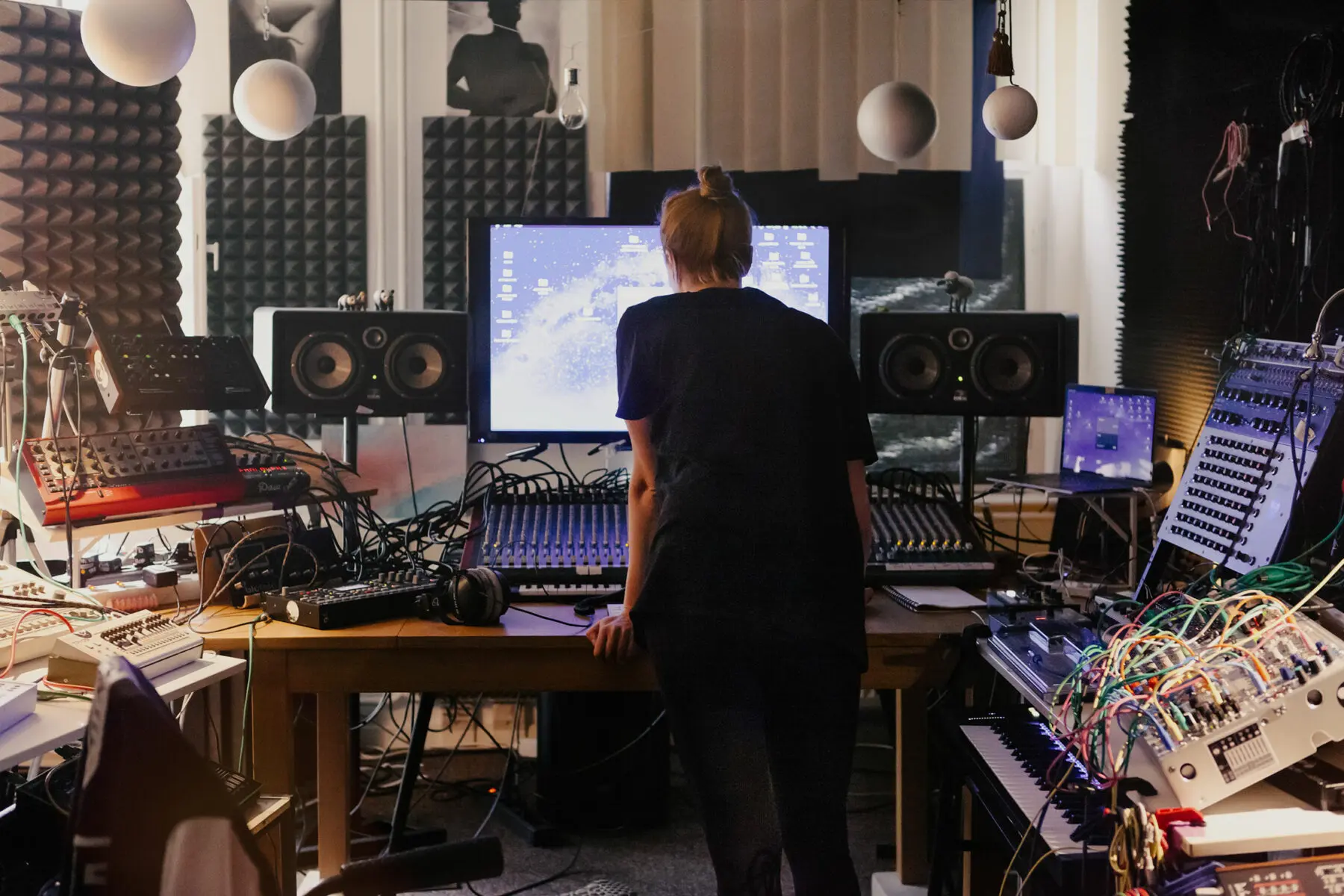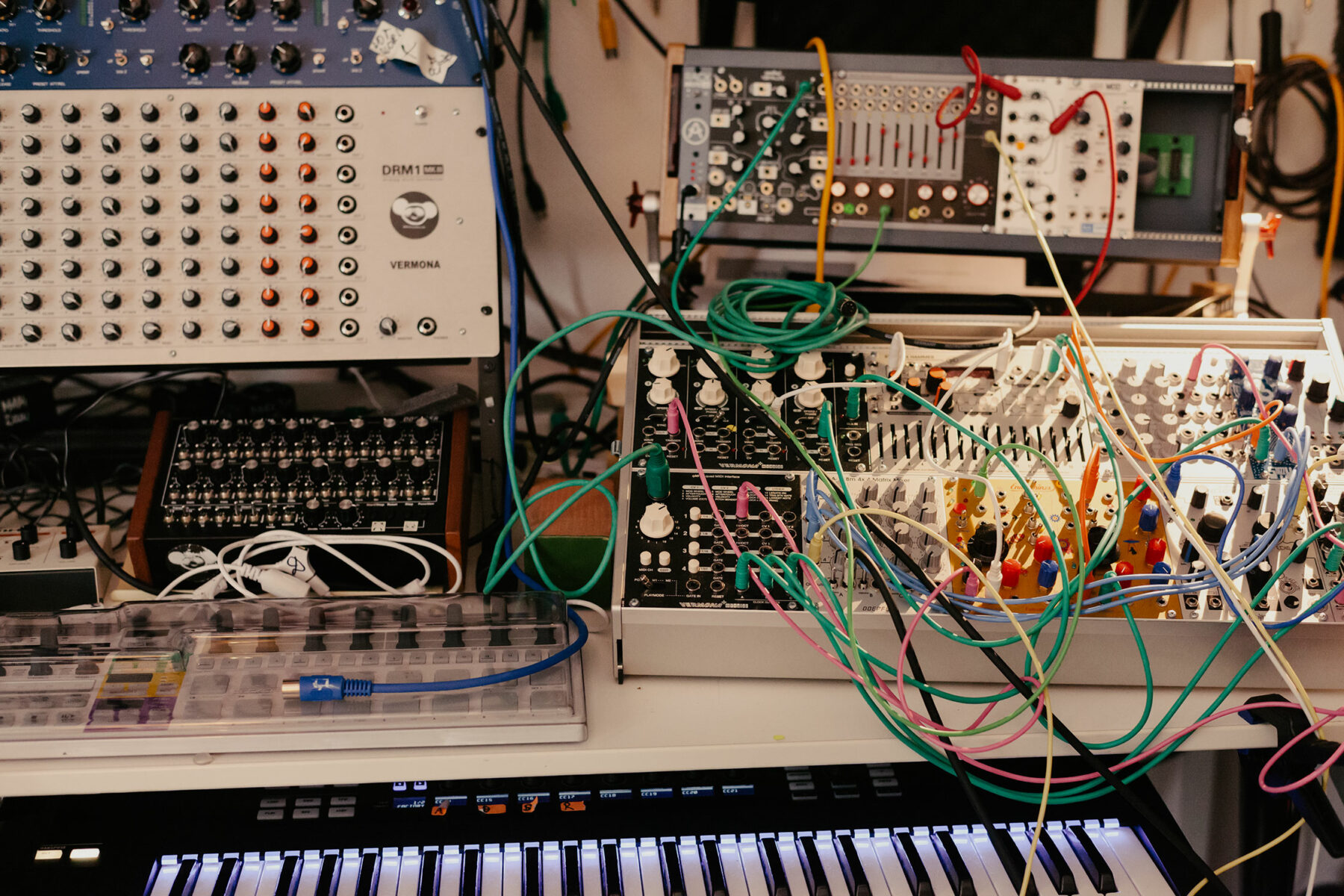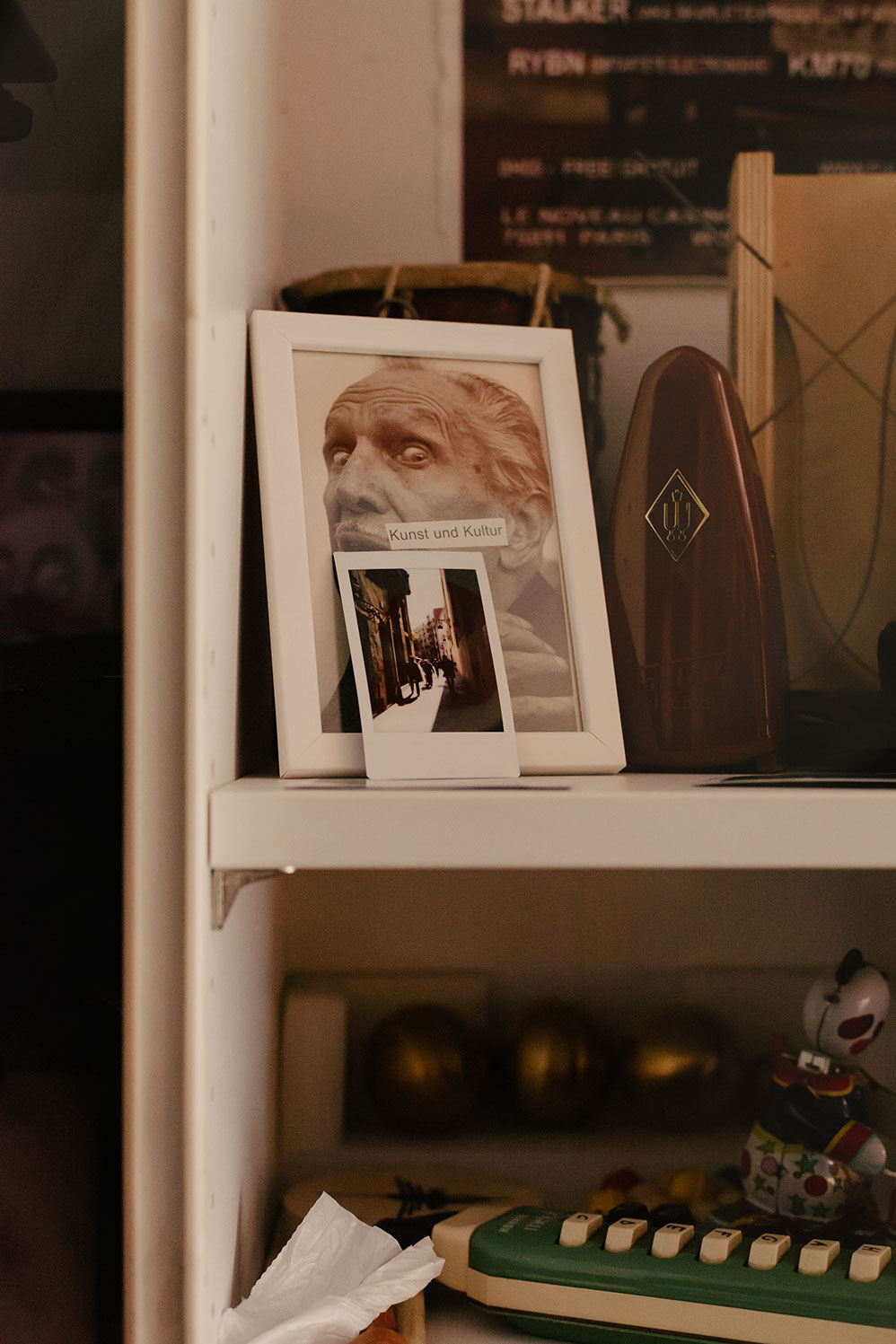From Paris to Berlin, the Russian artist has been shaking up the electronic music scene since the ’90s with her collaborative spirit, love of physics, and desire to answer life’s unanswerable questions.
“Do you smoke?” asks the Berlin-based techno artist Dasha Rush as she lights up a cigarette. Sat on the window sill of her dimly lit studio, with trains rushing by outside, she admits that she started smoking at a young age whilst growing up in Moscow. Now, she’s starting to think about quitting.
Born and raised in Russia while it was still part of the Soviet Union, Rush’s love for music was initially impeded by her native country’s strict censorship laws, which most notably limited access to tracks from the U.S. Growing up on a musical diet of her parent’s classical and disco records, she had her first taste of electronic music when she got her hands on a record by Latvian space disco duo Zodiac. This album, along with tracks by the likes of Jean Michel Jarre, Aphex Twin, and Acid Junkies, were her gateway into the rave scene that began to develop in Russia in 1992 after the fall of the Soviet Union. “I was still young, so I discovered it in around 1994,” she says, recalling the first rave she ever went to as a teenager. “It was a revelation. I’d never heard music like this before, such a block of synthesized sounds. I was so impressed.”
“All the systems that had existed for so many years completely collapsed, so everybody was disorientated.”
It wasn’t long before Rush decided to give DJing a go herself. Her first public performance came when she was invited to play at an event organized by a friend in St. Petersburg. Coming two days before the rave to practice with a borrowed record collection because she didn’t have one of her own—due both to being a teenager and the lack of records available in shops—Rush soon realized that she wanted to make music rather than just mix other people’s. With only a breif classical music education, she learnt by doing, picking up tips from friends in the Russian electronic music community, nearly all of whom were male. “There were no women, especially in something like techno,” she says. “I received some judgment, but that actually motivated me even more, and assured me that this was what I wanted to do.”
For Rush, a key part of committing to her chosen career path was her decision to leave Russia. “It was a difficult time when the Soviet Union fell, the ’90s were a complete mess,” she recalls. “All the systems that had existed for so many years completely collapsed, so everybody was disorientated.” Rush’s chance to escape was by way of a modeling contract in Paris, which she took in order to support her artistic ambitions despite having little interest in the fashion industry. “Playing records at night and going to castings in the morning was very difficult, but somehow it worked out,” she says.
While in the French capital, as well as playing in nightclubs and becoming enamored with the thriving electronic scene, Rush also discovered a DIY community of multidisciplinary artists including everyone from musicians to jugglers, dancers and painters. “We were just a group of young people gathering together. It was very spontaneous. We’d just congregate at night and see what we would come up with,” Rush explains. “It was like a research lab or something where you could exchange your ideas, interests, and talents,” she continues, recalling how the group would put on free performances in squats, advertising events through paper flyers and word of mouth. She also gleefully remembers one performance they conducted in a “huge house in a very posh part of Paris” that was donated by a mysterious benefactor in the wine industry. “He said we could use it for three months before he sold it. The only condition was we couldn’t destroy the place… which we almost did,” she says with a wry smile, describing how one dance performance saw them cover the basement with two tonnes of clay. “It was a complete mess afterwards.”
By 2008, Rush decided to leave Paris and moved to Berlin, attracted by its diverse musical landscape. When asked how she thinks the city has developed during her ten-year residence, she’s reticent to reiterate the negative opinions towards gentrification expressed by many long-term Berliners. “Berlin’s music scene has become more organized to a capitalist model,” she admits, “but it still has its own vibe. Maybe it’s a bit less romantic, but it’s still a melting pot for lots of young people coming with their own dreams of what Berlin can be.”
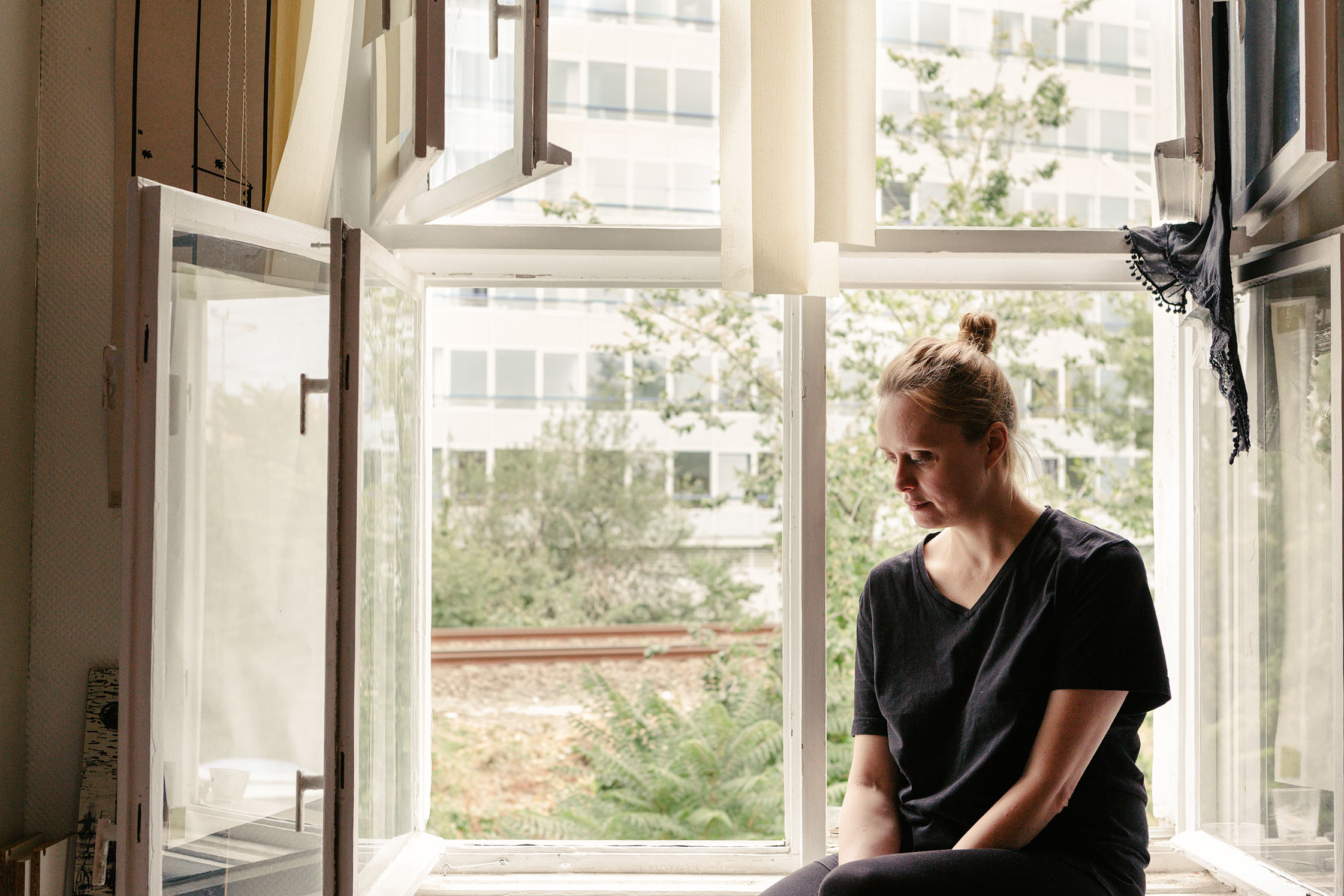
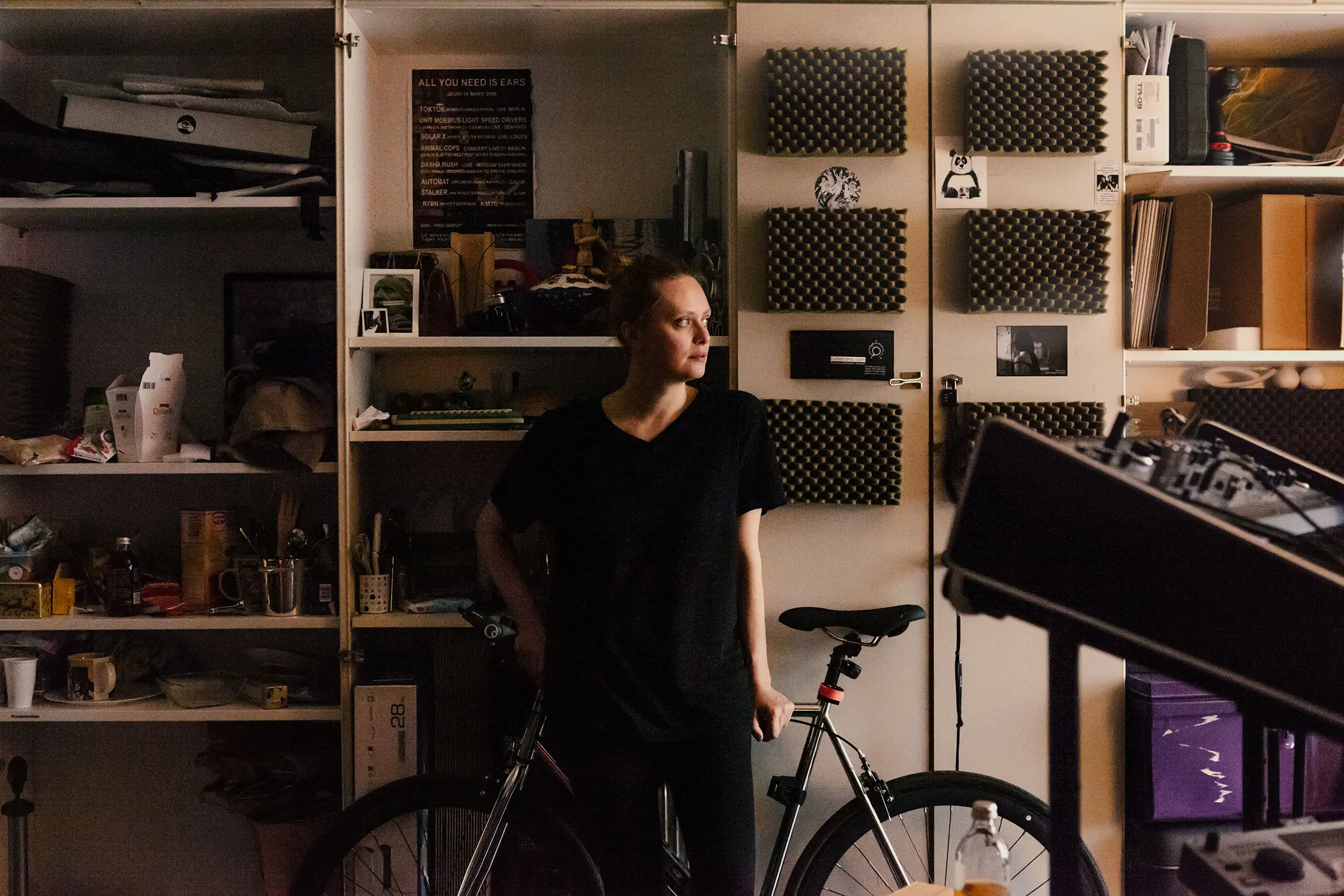
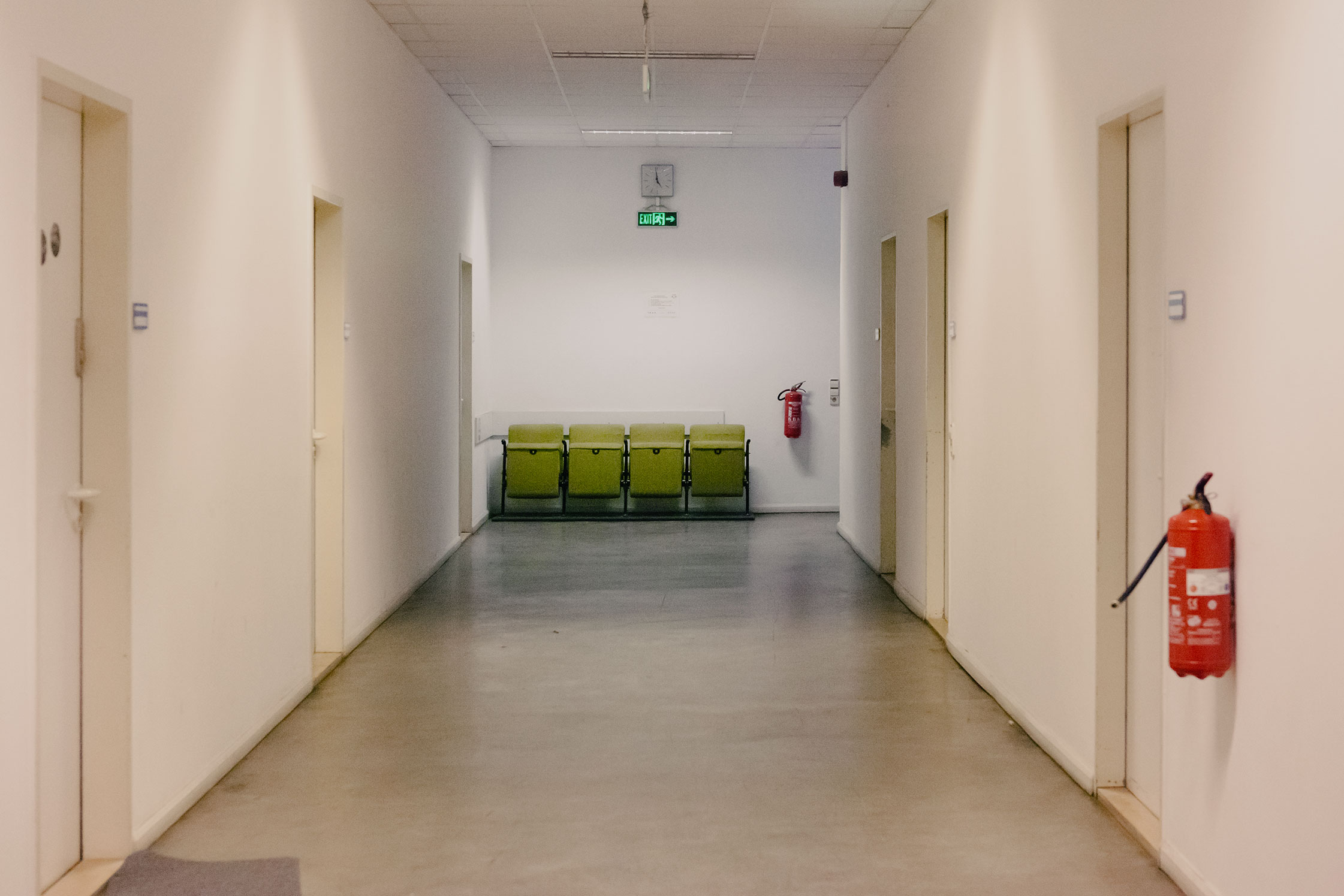
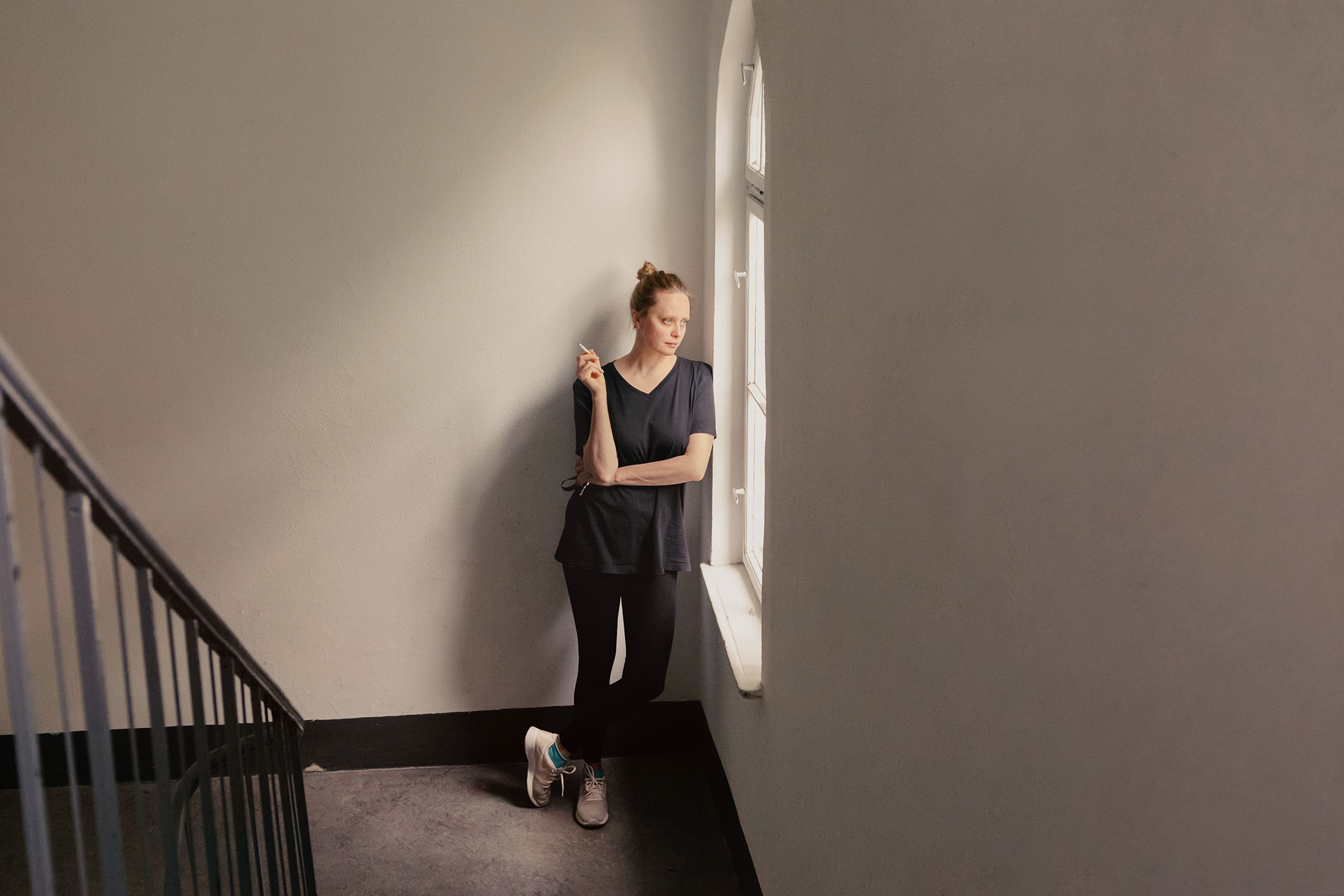

“Physics is a language whereby I can communicate questions that I cannot answer, or create a potential answer.”
Upon coming to Berlin, Rush decided to quit modeling and focus completely on music. While this involved establishing herself as a key player in the city’s renowned club culture venues, it also meant staying true to the interdisciplinary interests she developed in Paris by working on artistic projects with creators from alternative mediums. One of Rush’s most frequent collaborators has been with the video artist Stanislav Glazov, who has created stunning visual environments to complement the concepts explored in her music. “It’s very strict. He has to follow the guidelines when it’s my projects,” she says. “I create written scenarios that he follows and expresses visually.”
From exploring black holes in her AV Show Dark Hearts of Space, to endeavoring to digitally freeze the Berlin venue Kraftwerk in Antarctic Takt, the majority of these collaborative projects have concerned science and natural phenomena. “I really like physics,” says Rush, pointing to her phone which is full to brimming with apps and podcasts about discoveries in the scientific field. “To me, it’s a language whereby I can communicate questions that I cannot answer, or create a potential answer.” But Rush is very clear about the fact that she isn’t a physicist. “My projects are still primarily artistic, and are definitely my interpretation of things,” she says. “Obviously you can not create a real black hole in theater, but what you can do is play around with an idea of it by using physical characteristic of its existence.”
Her latest project, Aurora Cerebralis, is no exception. Premiering in September at the Berliner Festspiele, the immersive installation produced in collaboration with Peruvian digital artist Alex Guevara is an exploration of cerebral activity and neural connections. Aurora Cerbralis will place viewers inside the brain and allow them to observe the formation of an entire neural network. “I will play at some point with the audience’s perception,” says Rush, explaining how the sound and visuals will initially correlated, but will start to decay and desynchronize as the show continues. “I don’t want to tell you exactly what’s going to happen, but the culmination will connote that there is a superior conscious, whether that’s a God or the brain as a God itself.”
This reference to a higher power connects to the theme of spirituality which was prevalent in one of Rush’s recent projects. Shown in Halle am Berghain, the exhibition space of the infamous Berlin nightclub, Zone was a performance initiated by Berlin-based fashion label UY Studio to celebrate its tenth anniversary. It saw a phalanx of gold skirted dancers take over the venue with sufi—a style of circular Islamic dance—inspired movements set an ambient soundtrack performed live by Rush. “The idea was to explore what ritual is and what role it plays in everyday life,” she explains. “For example, in Berlin, going to Berghain is a ritual. There are a lot of people who call it the church and go every Sunday. So there’s this ritualism of the venue, and then also the act of repetitively dancing to abstract techno itself,” she continues. It’s a ceremonial addiction that seems to apply to Rush herself who jets off every weekend to play DJ sets at clubs across Europe. So while she may be thinking about giving up smoking, it seems unlikely she’ll be giving up her musical addiction anytime soon.



Dasha Rush is a Moscow-born and Berlin-based electronic music DJ and producer. Her upcoming audio-visual project Aurora Cerabalis explores cerebral activity and neurons and will premiere as part of Berlin Art Week at the Berliner Festspiele on September 15, 2019. If you’re interested in reading more Friends of Friends stories about Berlin’s diverse music scene, why not check out this profile on Sasha Perera, or this round up of the women making noise as singers, DJs, event organizers, writers, and activists in the German capital.
Text: Emily May
Photography: Aimee Shirley
